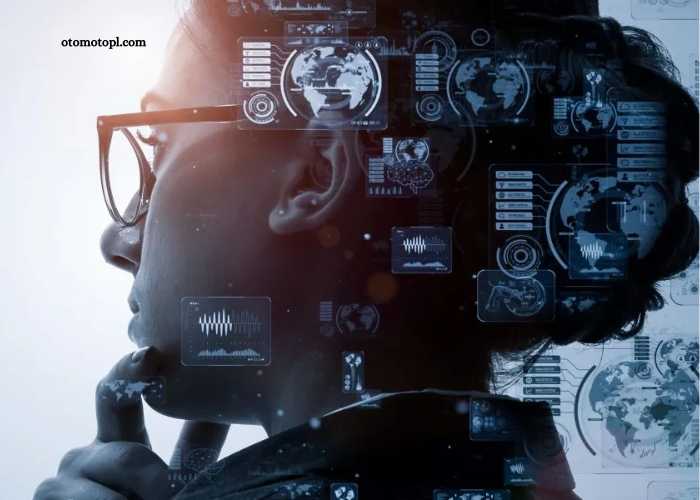AI Breakthroughs (AI) has become a buzzword in recent years, and for good reason. It’s transforming the way we live, work, and interact with the world around us. AI is no longer the stuff of science fiction; it’s a tangible force driving innovation across industries. In this article, we’ll explore the latest breakthroughs in AI technology and how they are shaping the future of our world.
Understanding AI
Before delving into the groundbreaking developments in AI, it’s essential to have a basic understanding of what AI is. At its core, AI refers to the development of computer systems that can perform tasks that typically require human intelligence. These tasks can range from problem-solving and decision-making to visual perception and natural language understanding.
The AI field can be broadly divided into two categories: Narrow AI and General AI. Narrow AI, also known as Weak AI, is designed to perform a specific task or a set of tasks. It is the most common form of AI we encounter in our daily lives, from virtual assistants like Siri and Alexa to recommendation algorithms used by streaming services. General AI, or Strong AI, represents a system with human-like intelligence capable of performing any intellectual task that a human can. While we’ve made significant strides in Narrow AI, achieving General AI remains a lofty goal.
Breakthroughs in AI
Deep Learning
Deep Learning is a subset of machine learning that has made remarkable strides in recent years. It is inspired by the structure and function of the human brain, with artificial neural networks processing information in layers. This breakthrough has significantly improved the accuracy of AI systems in tasks like image and speech recognition.
Natural Language Processing (NLP)
NLP is a field within AI that focuses on enabling machines to understand, interpret, and generate human language. Recent advancements in NLP have given rise to chatbots, language translation services, and even content generation algorithms. These technologies are revolutionizing customer service, content creation, and cross-cultural communication.
Computer Vision
Computer Vision allows machines to interpret and understand the visual world. This technology is used in facial recognition systems, autonomous vehicles, and medical diagnostics. Innovations in computer vision have the potential to reshape industries such as healthcare, automotive, and security.
Reinforcement Learning
Reinforcement Learning is a type of machine learning where AI agents learn to make decisions by trial and error. It’s been used to teach AI systems to play complex games like Go and Chess, where the AI learns optimal strategies by playing thousands of simulated games. This approach has applications in robotics, autonomous systems, and more.
Generative Adversarial Networks (GANs)
GANs are a powerful tool in generating synthetic data, such as images and text. They consist of two neural networks, a generator and a discriminator, which compete against each other to produce realistic data. GANs have a wide range of applications, including creating deepfake videos, generating realistic artwork, and data augmentation for training AI models.
Quantum Computing
Quantum computing, while still in its infancy, holds immense potential for AI. Quantum computers can perform complex calculations at speeds unattainable by classical computers. This could lead to significant advancements in AI research, enabling the development of more powerful and efficient AI models.
AI in Various Industries
AI is not just a theoretical concept; it’s already having a profound impact on various industries. Here are some examples:
Healthcare
AI is revolutionizing healthcare with applications such as medical image analysis, predictive analytics, and drug discovery. AI can detect diseases earlier, recommend personalized treatment plans, and assist in drug development, ultimately saving lives and reducing healthcare costs.
Finance
In the financial sector, AI is used for algorithmic trading, risk assessment, fraud detection, and customer service. AI-driven robo-advisors can provide personalized investment advice, while predictive algorithms help banks identify potential fraudulent transactions.
Autonomous Vehicles
Self-driving cars rely on AI to navigate and make real-time decisions on the road. Companies like Tesla, Waymo, and Uber are pioneering the development of autonomous vehicles, which have the potential to make transportation safer and more efficient.
Retail
AI powers recommendation systems in e-commerce platforms, personalizing the shopping experience for customers. Inventory management, supply chain optimization, and cashier-less stores are other areas where AI is making a difference.
Education
In education, AI-driven platforms can provide personalized learning experiences for students. AI can analyze student performance, adapt lessons to individual needs, and even automate administrative tasks for educators.
Ethical and Societal Considerations
While AI breakthroughs promise great advancements, they also raise ethical concerns. Issues surrounding privacy, bias in AI algorithms, and job displacement due to automation need careful consideration. Policymakers, researchers, and businesses must collaborate to ensure AI’s responsible development and deployment.
The Future of AI
AI is a constantly evolving field, and its potential is virtually limitless. We can expect to see further breakthroughs in the coming years, pushing the boundaries of what AI can achieve. General AI, though still distant, remains a long-term aspiration for researchers.
As AI continues to transform industries and society, it’s crucial to remain informed and engaged with the field’s developments. Whether you are a business leader looking to leverage AI for competitive advantage, a researcher pushing the boundaries of AI technology, or a concerned citizen monitoring the ethical implications, AI’s pioneering future is one we all have a stake in shaping. As AI continues to break new ground, it will remain a pivotal force in shaping the future of technology and the world we live in.





банки взять кредит без отказа на карту банки взять кредит без отказа на карту .